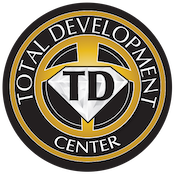Answering Your College Prep Questions: A Comprehensive Guide for Parents

As you embark on the journey of preparing for college, understanding the process is crucial. College admissions can seem daunting, but with proper preparation and guidance, it becomes manageable. You’ll probably have a ton of college prep questions as you walk with your student through their junior and senior years of Highschool.
In this blog post, we’ll delve into how to navigate through the college prep process effectively. We’ll discuss how to assess needs in terms of academic performance, AP exams results, and test scores.
We also explore finding mentorship resources that could provide valuable insights and help. Last, we touch upon financial aid options available for students. This information aims to answer all your pressing college prep questions comprehensively.
Navigating the College Prep Process
The anticipation and apprehension that comes with the college preparation journey can be a challenge for both students and you as parents. Don’t worry though — with a bit of assistance, you can make the college prep process less intimidating and more manageable.
Remember, your student should take the lead in their college prep. This includes researching potential colleges, understanding admission requirements, preparing for standardized tests like the SAT or ACT, writing application essays, filling out financial aid forms (like FAFSA), and making final decisions about where to attend. Your task as a parent is to help keep them motivated, on track, and open-minded.
- Researching Potential Colleges: Encourage your student to explore different types of schools – public vs private universities, liberal arts colleges vs research institutions, and more. Consider factors like location, campus size, student body, and academic programs offered. Have them make a list of top choices.
- SAT/ACT Preparation: Help them find resources for test preparation, such as books from the library or bookstore, or online platforms like Khan Academy. We have an entire article on this here.
- Filling Out Applications: Make sure they understand all parts of applications, including personal statements/essays, which are crucial components showcasing their personality beyond grades and scores.
- Navigating Financial Aid: Talk about finances early on so that your child understands what you can afford and what kind of financial aid might be necessary.
Be a source of direction as they go through the process, aiding them in managing due dates, meetings and other engagements. Discuss options when choosing between offers, be a sounding board during times of stress and frustration, and celebrate achievements along the way.
Encourage involvement in extracurricular activities, sports, volunteer work, internships, and job shadowing experiences. These activities help develop the character skills needed for success not only in college but in life beyond. At the Total Development Center, we believe mentorship and character building play key roles in overall development.
Assessing Your Student’s Needs
Let’s explore how to aid your learner in the college preparation procedure. It all starts with understanding their unique needs. This means communicating openly and working together to identify areas where they may need extra help.
Determining Academic Strengths and Weaknesses
Start by assessing your student’s academic strengths and weaknesses. Do they rock at math but struggle with writing? Or maybe they’re a history buff, but science isn’t their thing? Knowing these details can help you figure out where they might need extra support, like hiring a tutor or signing them up for extra classes.
Evaluating College Prep Skills
Aside from academics, it’s also important to evaluate your child’s readiness for the college application process itself. Are they comfortable researching potential colleges, filling out applications, writing essays, and preparing for interviews? If not, consider finding resources that specialize in college prep skills development. (Contact us — we can help in this area!)
Finding the Right Mentorship Program
If you think mentorship could benefit your child during this crucial time of transition into higher education, don’t worry. There are plenty of programs available that are designed specifically to guide students through the complexities of college preparation.
- Tutoring Services: Tutors can provide one-on-one assistance with specific subjects or general study skills. Check out Khan Academy for free online tutoring across various subjects.
- Mentorship Programs: These programs pair students with mentors who offer guidance on everything from choosing a major to navigating financial aid. We can provide more specific details on this piece as well once we know your needs.
Remember, every student is different. What works best will depend on individual learning styles and preferences. Your role as a parent or guardian isn’t necessarily about having all the answers. It’s more about guiding them towards finding solutions themselves while being there for emotional support along the way. This can be difficult for a parent — we’re used to doing everything for our kids.
Finding Mentorship Resources
Navigating the college prep process can be intimidating, yet with appropriate direction and help, your learner can make it through triumphantly. A good mentor can provide invaluable advice, support, and encouragement throughout the college prep journey.
Where can one locate a mentor for the college prep journey? Here are some places to start:
- School Counselors: School counselors often have a wealth of knowledge about college admissions and may also know about local mentoring programs or individuals who could serve as mentors.
- Tutoring Centers: Many tutoring centers offer not only academic assistance but also mentorship programs that focus on character building skills essential for success in high school, college, and beyond.
- Mentorship Programs: There are many organizations that connect students with volunteer mentors in their community.
- Career Professionals: If your student knows what career they might want to pursue after graduation, reaching out to professionals in that field could lead to valuable connections and potential mentorships.
In addition to finding individual mentors for your child’s needs during this crucial period in their life, there are several online platforms available which provide free or low-cost resources for families navigating the path towards higher education. Websites like https://www.collegeboard.org/ offer comprehensive information on colleges across the U.S., scholarship opportunities, and personalized plans tailored to each student’s needs.
Finding a suitable mentor doesn’t happen overnight – it requires time and effort from both you and your student. But once found, it’s worth every bit of time and energy. Remember that while you as a parent play an important role in guiding your children through this process, ultimately it’s students who need to take charge by actively seeking relationships beneficial towards achieving their goals.
FAQs in Relation to College Prep Questions
1. Sharing my personal college experiences can help others navigate their own journey.
2. Researching and comparing different colleges and universities is crucial in finding the right fit for you.
3. The skyrocketing cost of college tuition is a major concern for many students and families.
4. Understanding the options for student loans and financial aid can make a tremendous difference in managing the cost of college.
5. While college education has many benefits, it’s important to acknowledge and address the negative aspects, such as student debt and mental health challenges.
6. Be open to trade schools and other options if your student is leaning that direction.
Preparing for college can be daunting, but fear not! Here are three crucial steps to help you navigate the process with ease.
- Step one: assess your student’s academic strengths and weaknesses to determine what areas need improvement.
- Step two: seek out mentorship resources, such as guidance counselors or online forums, to gain valuable insights and advice.
- Step three: familiarize yourself with the different aspects of the college application process, from standardized tests to financial aid.
Remember, preparation is key to success in college and beyond! So ask your college prep questions and lean into the
